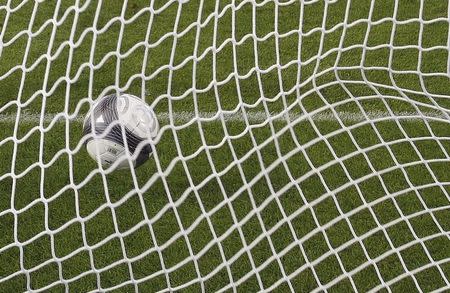China adopts 'Field of Dreams' approach to encourage youth
BEIJING (Reuters) - China plans to have more than 70,000 soccer pitches available for everyone to use by 2020 as the country continues to map out ways of revitalizing the sport, the government said on Tuesday. President Xi Jinping is an avid soccer fan and China is in the midst of a plan to turn its national team into one of the world's best by 2050, though the sport has been damaged by match-fixing scandals and poor performances on the field. China has worked since 2009 to promote grassroots soccer and crush illegal gambling syndicates but admitted last year its efforts were still lagging. The latest part of the scheme, released by the powerful planning body the National Development and Reform Commission in conjunction with the sports and education ministries, focuses on increasing the number of pitches. At the end of 2013, the country had about 10,000 pitches in "quite good" condition, and there are also some 40,000 in schools, the plan said. The ones at schools would be renovated while another 20,000 would be built for society at large to use, it added. Pitches at schools and companies will be opened for other members of the community to use, either free or at reduced cost, and two new national training centers will be built, according to the plans. Professional clubs will also be encouraged to open up their facilities and provide training for people. The government would provide funding to help the project, while private capital would also be encouraged, it added. "Fully recognize the importance of strengthening the building of soccer ground facilities," the plan said. Xi has spoken in the past of "three wishes" for China; to qualify for another World Cup since their first and only appearance at the 2002 finals, to host a World Cup, and to eventually win one. Ranked 81st in the FIFA rankings, China scraped through to the final phase of Asian 2018 World Cup qualifying with a nervy 2-0 win over Qatar in March. China reached the quarter-finals of the Asian Cup in Australia in January 2015 after winning all three of their group matches, a performance the country's anti-corruption watchdog called a direct result of a gambling crackdown. (Reporting by Ben Blanchard; Editing by John O'Brien)

 Yahoo Sports
Yahoo Sports 

